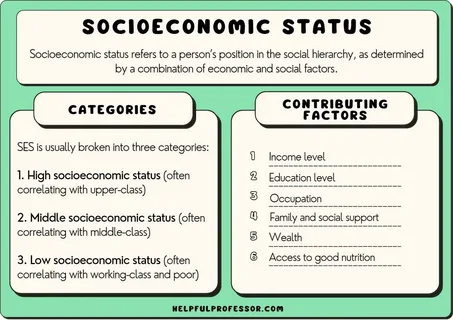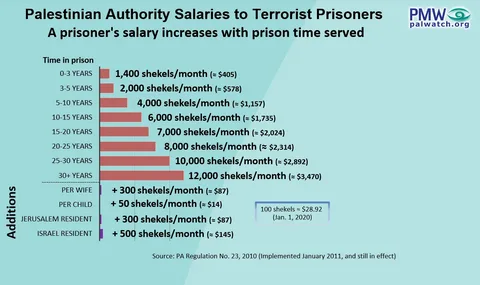Wondering what a Sub Divisional Magistrate (SDM) earns and whether it’s a rewarding career? You’re not alone. Many people are curious about how much money an SDM takes home, especially considering the role they play in society.
Let’s dive into everything you need to know about the Sub Divisional Magistrate salary and how it fits into the broader scope of public service compensation.
What is a Sub Divisional Magistrate?
Before we get into the salary details, let’s quickly touch on what an SDM actually does. The Sub Divisional Magistrate is a high-ranking government official in charge of the administration of a subdivision within a district.

Their duties can range from overseeing law enforcement, implementing government policies, ensuring smooth elections, to handling land disputes and more.
Average Sub Divisional Magistrate Salary
So, let’s get to the point you’ve been waiting for: How much does a Sub Divisional Magistrate earn?
In the United States, the equivalent of a Sub Divisional Magistrate might be a local magistrate or government official at a regional level. While the title of SDM is more common in countries like India, it’s important to note that in the U.S., magistrates typically earn between $75,000 to $150,000 annually, depending on their jurisdiction and years of experience.
Now, if you’re looking specifically at SDM roles in other countries like India, the salary could range between $10,000 to $15,000 annually, factoring in benefits like housing allowances, transportation, and healthcare.
Factors That Influence Sub Divisional Magistrate Salary

A Sub Divisional Magistrate salary is influenced by several factors. Some of the key components include:
- Experience: Just like any job, the more years of service you have, the better the salary. Entry-level SDMs might earn a bit less, but with experience, promotions, and added responsibilities, the salary can increase significantly.
- Location: A magistrate in a densely populated area may receive a higher salary due to the added responsibilities and challenges that come with managing a larger subdivision.
- Government Policies: Periodically, government bodies may revise the pay structure of their officials. This means your salary could go up depending on government budgeting and legislative changes.
- Bonuses and Perks: SDMs often get more than just a salary. Housing allowances, transportation, and medical coverage are just a few perks that can make the total compensation package much more attractive.
Is a Sub Divisional Magistrate’s Salary Competitive?

Compared to other public service roles, a Sub Divisional Magistrate salary is competitive, particularly when you consider the added benefits and prestige that come with the role.
Plus, the emotional reward of serving the public often outweighs any monetary compensation for those drawn to this line of work.
Internal Growth and Opportunities
One of the biggest perks of being an SDM is the growth potential within the government system. With a few years of experience, an SDM can be promoted to higher-level positions like District Magistrate or even Divisional Commissioner.
Key Takeaways
So, where does this leave us? Let’s break it down in simple terms:
- The Sub Divisional Magistrate salary is solid for a government job, especially when you factor in perks like housing, healthcare, and transportation.
- SDMs may not make as much as their corporate counterparts, but the job security, societal respect, and career growth are unmatched.
- The salary is competitive depending on the country. In places like the United States, magistrates earn a respectable wage ranging between $75,000 to $150,000 per year, depending on their jurisdiction, experience, and workload. In countries like India, it ranges from $10,000 to $15,000 annually, but the added benefits make the package much more attractive.
Why Consider Becoming an SDM?
You might be wondering, “Why should I consider becoming a Sub Divisional Magistrate?” Good question. Here are some compelling reasons why this role could be right for you:
- Job Security: Government jobs, particularly high-ranking ones like the SDM, offer long-term stability. Once you’re in, you can expect a steady salary and promotions based on merit.
- Impact: You’ll have the opportunity to directly impact your community. Whether you’re resolving disputes or maintaining law and order, your decisions have real, lasting effects.
- Respect and Prestige: SDMs hold a significant place in society. It’s a role that commands respect, as you’re seen as a figure of authority and justice.
- Career Growth: The Sub Divisional Magistrate role is not a dead-end job. You can climb the ranks to become a District Magistrate or even higher, leading to better pay and more responsibility.
- Perks and Benefits: Besides the basic salary, SDMs enjoy government-provided benefits, which can include housing, transportation, and healthcare. These benefits often make the job even more appealing.
Personal Stories from SDMs
I’ve had the chance to speak with a few individuals who have held the role of Sub Divisional Magistrate, and their stories really highlight the unique combination of challenge and reward that this position offers.
Another SDM mentioned that one of the most fulfilling aspects of the job is the variety of tasks he’s responsible for. From overseeing public safety during elections to responding to emergencies, the job is never boring.
Challenges SDMs Face
It’s not all rainbows and sunshine, though. Like any job, being an SDM comes with its own set of challenges:
- Workload: SDMs are responsible for multiple subdivisions, meaning the workload can pile up quickly. You’ll need strong organizational skills to manage everything efficiently.
- Stress: The role often requires you to make difficult decisions under pressure. Whether it’s a law enforcement issue or a public dispute, the weight of your choices can sometimes be stressful.
- Work-Life Balance: With great responsibility comes great sacrifice. SDMs, especially during election periods or emergencies, often find themselves working long hours.
However, despite these challenges, many SDMs report that the benefits—both emotional and financial—far outweigh the downsides.
Final Thoughts
So, is becoming an SDM worth it? Absolutely—if you’re the right fit for the role. The Sub Divisional Magistrate salary might not make you a millionaire overnight, but it offers a decent wage, fantastic benefits, and a role that’s rich in responsibility and community impact.
Wrapping it Up
The role of a Sub Divisional Magistrate isn’t just about the paycheck. It’s about taking on a leadership role in your community, making tough decisions, and being a force for good.
FAQs about Sub Divisional Magistrate Salary
Q: How long does it take to become a Sub Divisional Magistrate?
A: It depends on the country and the specific path you take. Generally, it involves passing a competitive exam, followed by several years of experience in administrative roles.
Q: Can the salary of an SDM increase over time?
A: Yes, absolutely. With promotions, increased experience, and periodic government revisions, an SDM’s salary can increase over time.
Q: What are the main benefits of being an SDM?
A: In addition to the salary, SDMs enjoy benefits like housing allowances, transportation, healthcare, and a solid pension. The role also provides job security and opportunities for promotion.
Q: Is it worth becoming an SDM if I’m interested in community service?
A: Definitely! If you’re passionate about making a difference in your community and enjoy leadership roles, becoming an SDM is one of the best ways to contribute to society while earning a respectable salary.
Q: How does the Sub Divisional Magistrate salary compare to other government roles?
A: The salary of an SDM is competitive, especially considering the benefits package and the potential for career growth. While they might not make as much as higher-ranking officials, SDMs enjoy a stable income and significant job perks.
If you’re still on the fence, consider this: being a Sub Divisional Magistrate isn’t just about the money. It’s about the impact, the respect, and the chance to lead. If those things appeal to you, then the Sub Divisional Magistrate salary is just the icing on the cake.
Conclusion
In short, while the Sub Divisional Magistrate salary might not rival top-tier corporate salaries, it is a solid, competitive compensation for those in public service. The job offers plenty of perks, from allowances to job security and career growth potential. If you’re passionate about making a difference in society and are ready to handle the unique challenges that come with the role, a career as an SDM could be incredibly fulfilling.
The salary is just the cherry on top.
If you’re considering a public service career, the Sub Divisional Magistrate position is a fantastic choice, both financially and emotionally. The mix of salary, benefits, and job satisfaction make it one of the most respected and secure roles in government.

